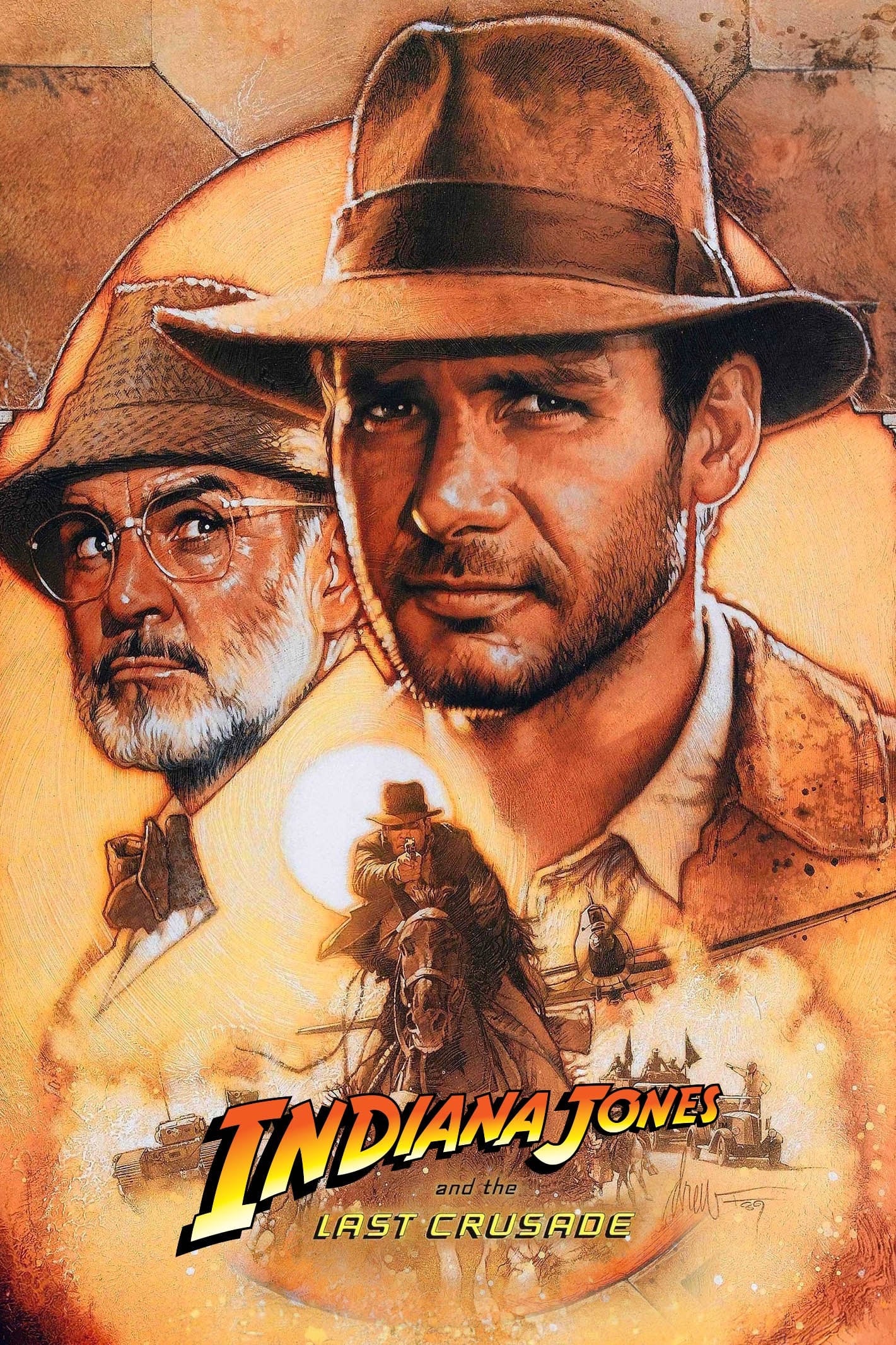
In 1938, an art collector appeals to eminent archaeologist Dr. Indiana Jones to embark on a search for the Holy Grail. Indy learns that a medieval historian has vanished while searching for it, and the missing man is his own father, Dr. Henry Jones Sr.. He sets out to rescue his father by following clues in the old man's notebook, which his father had mailed to him before he went missing. Indy arrives in Venice, where he enlists the help of a beautiful academic, Dr. Elsa Schneider, along with Marcus Brody and Sallah. Together they must stop the Nazis from recovering the power of eternal life and taking over the world!
21 May Indiana Jones and the Last Crusade (1989)
The Penitent Man
I had to come back to this, because I’m puzzled.
I wonder what it is about Spielberg. It is easy to criticise his mawkish sentimentality and his theatrical sweeps. But I think it is more than that. After all, we happily tolerate that and worse in some others. And it cannot be simply that we are put off by what we imagine as his riches.
There is at least one film in there that was deep, and a couple that were both well made and have that quality we call personal — meaning that there is some internal insight. But even those repel me; even the “holy” ones.
My working theory is that he is neither deep as a man, nor inclined to innovate in any way. He makes yesterday’s pictures but with no added insight or annotation. So they appear as stupid.
The story goes that Lucas understood this, either by being told or intuiting it. So he made up one of his Campbell-inspired, Kurosawa-flavored stories, talked his buddy into starring and turned the thing over to Steven. That first one (“Lost Ark”) was a phenomenon.
Lucas is at root a storyteller, a good one. He is still filling in the Star Wars narrative. I will rewatch “Willow” soon. There’s twice as much story as is in the movie, and Lucas was careful to find other outlets to tell it. Spielberg on the other hand is someone with an interest in shots (like Scorsese). He’s interested in immediate effect, in clarity. Lucas will — every time — sacrifice that for the larger continuity of story and its integration in with the larger mythical context we carry. His films — the ones he directs — are visually barbarous, even when they copy masters.
Spielberg will — every time — sacrifice the power of the story for visual juice. This is the case even when the film is supposed to be grave and deep. Remember how thrilling it was to “see” the D-day landing? And how little it mattered, even to the rest of the film? And how little that film mattered.
So I’m fascinated by this. The first film was mostly Lucas. Steven had done his one really good film (“Encounters”) trying his darndest to be French. Then a flop, and then the first Indy film. He was simply a director hired by the then richest filmmaker in history. Then, monetary success for our Steven and the second film comes along. That one was mostly Spielberg, and ranks with his biggest disasters.
Then, this one. Now here we have both men playing a role. They alternate in influence, and the result is almost a film school in itself.
Half of the movie is the story: father and son, greed, power and goodness. Magic versus science, detective work versus adventure-driven guts. Intrigue. These are all unsophisticated in themselves, but they are basic to life. Every time we shift into this mode, the environment fades (even in the last horizon shot) and we focus on the characters.
The other half of the movie is the eyewash. Now I must admit that knowing that the exterior locations are real places (excepting the fakey Austrian Castle) gives a thrill. Spielberg could not have known that this would soon matter and that anyone would be impressed by the texture of the real. But the rest is worthless. It really is. Especially disappointing is the final sequence after they enter Petra.
It is all about the short view, the visual cleanliness. It is a sterility of soul, a lack of purpose. That’s why I don’t like the man, or anything he does.
Posted in 2008
Ted’s Evaluation — 2 of 3: Has some interesting elements.


No Comments